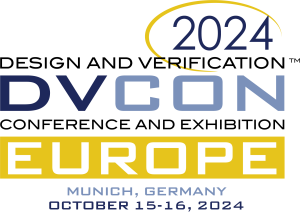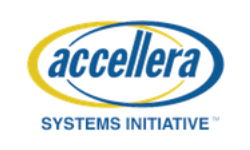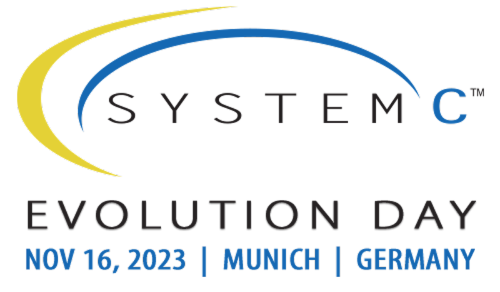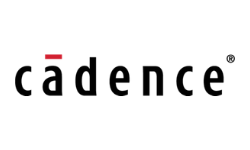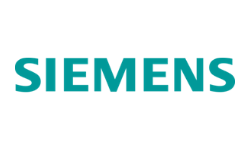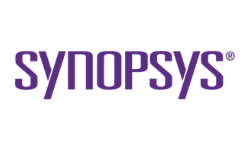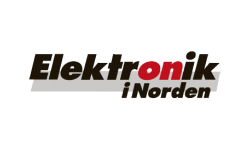Registration will open daily 30 minutes before the 1st session.
- Tuesday, November 14
- Wednesday, November 15
- Thursday, November 16
| Forum 4 | Forum 5 | Forum 6 | Forum 7 | Forum 8 | Großer Saal | |
| 8:00 – 8:15 AM | Opening Session (Ballsaal) | |||||
| 8:15 – 9:15 AM | Keynote Speaker: Michaela Blott Pervasive and Sustainable AI with Adaptive Computing (Ballsaal) | |||||
| 9:15 – 10:15 AM | Panel: “All AI All the Time” Poses New Challenges for Traditional Verification (Ballsaal) | |||||
| 10:15 – 10:30 AM | Attendee Break (Großer Saal) | |||||
| 10:30 – 12:00 PM | A Hybrid Approach For Interrupts Verification Verification of an AXI cache controller using multi-thread approach based on OOP design patterns [Short] Hybrid Emulation for faster Android Home screen bring up and Software Development [Short] A perfect blend of verification techniques, platforms, and AI-empowered debugging in Ethernet Subsystem Verification | SV VQC UDN for Modeling Switch-Capacitor-based Circuits Self-Triggering Mechanism for Modeling a Low-Dropout Regulator with Load Capacitor **[Short] On the Performance Differences of SystemC and SystemC AMS: A Guideline for Real Number Modeling and Beyond **[Short] A tool for Investigating Cyber-Physical Systems via SystemC AMS Virtual Prototypes Derived from SysML Models | [Short] A Model-Based Reusable Framework to Parallelize Hardware and Software Development Fuzzing Firmware running on Intel® Simics® Virtual Platforms [Short] 400G IPU Case Study: Demonstrating Shift-left of Soft Logic RTL Development on Real World Design using Intel Agilex FPGA SystemC Model **Co-Design of Automotive Boardnet Topology and Architecture | Verilator + UVM-SystemC: a match made in heaven Closed-Loop Model-First SoC Development With the Intel Simics Simulator ** [Short] A Compositional Simulation Framework for Testing Adversarial Robustness of Deep Neural Networks ** [Short] Large-scale Gatelevel Optimization Leveraging Property Checking | [Short] An Improved Methodology for Debugging UPF Issues at SoC level Power Aware Simulations Unified Architecture of L1 and L2 Cache with Low Power Extensions for Multi-Core UVM-based Library Package Virtual testing of overtemperature protection algorithms in automotive smart fuses [Short] Efficient Verification of a RADAR SoC Using Formal and Simulation-Based Methods | |
| 12:00 – 1:00 PM | Lunch (Großer Saal) | |||||
| 1:00 – 2:30 PM | A scalable VIP component to increase robstuness of co-verification within an ASIC A Novel Framework to Accelerate System Validation on Emulation [Short] Low-Power Validation Framework for Standard Cell Library including Front-End and Back-End implementation [Short] Initialization Techniques for D-Flip-Flop Based Scan Chain with Scan Flush Architecture in Gate-Level Simulation | System-Level Simulation of a SPAD-Based Time-of-Flight Sensor in SystemVerilog **Clock Tree Design Considerations in The Presence of Asymmetric Transistor Aging **Variation-Aware Performance Verification of Analog Mixed-Signal Systems | [Short] Fault-injection-Enhanced Virtual Prototypes Enable Early SW Development for Automotive Applications HW-SW-Coverification as part of CI/CD Integration Verification of Safety Components in Automotive Chip Modules [Short] Virtual ECUs with QEMU and SystemC TLM-2.0 | Accelerating Complex System Simulation using Parallel SystemC and FPGAs ** [Short] Control Flow Analysis for Bottom-up Portable Models Creation ** [Short] MetaPSS: An Automation Framework for Generation of Portable Stimulus Model | Accelerate Functional Coverage Closure Using Machine-Learning-Based Test Selection A UVM Test-bench Skeleton Leveraging the Event Pool and Sequence Layering Towards a Hybrid Verification Environment for Signal Processing SoCs | |
| 2:30 – 2:45 PM | Attendee Break (Großer Saal) | |||||
| 2:45 – 3:45 PM | The Three Body Problem Break the SoC with UVM Dynamically Generated Program Code | Bridging the gap between system-level and chip-level performance optimization **MapGL: Interactive Application Mapping and Profiling on a Grid of Processing Cells | Reverse Hypervisor – Faster SoC Simulation, an approach to Arm on Arm on Arm Efficient Debugging on Virtual Prototype using Reverse Engineering Method | Verification Methodology for Efficient PVT(Process, Voltage and Temperature)Variation Analysis & Characterisation for Thermal and Power Aggressor IPs in a 3D SOC. Smart TSV (Thru Silicon Via) Repair Automation in 3DIC designs | Plug and Play Verification: Leveraging Block-Level Components for Seamless Top-Level Integration The Road to Robustness: Addressing LPDDR5X PHY Verification Challenges with DFE | |
| 3:45 – 4:00 PM | Attendee Break (Großer Saal) | |||||
| 4:00 – 5:00 PM | Planning for RISC-V Success: Verification Planning and Functional Coverage lead to quality RISC-V processor IP A Novel Approach to Standardise Verification Configurations using YAML | **Evaluation of the RISC-V Floating Point Extensions **DSA Monitoring Framework for HW/SW Partitioning of Application Kernels leveraging VPs | Grid-based Mapping and Analysis of a GoogLeNet CNN using MapGL Editor VPSim : Virtual Prototyping Simulator with best accuracy & execution time trade-off for High Performance Computing systems evaluation and benchmarking | Testbench Linting – open-source way Effective Design Verification – Constrained Random with Python and Cocotb | An Elegant scoreboard eco-system deploying UVM Callbacks, Parameterization for Multimedia designs from Imaging perspective Pragmatic Formal Verification Methodology for Clock Domain Crossing (CDC) | |
| 5:00 – 6:00 PM | Panel: The Great Verification Chiplet Challenge (Ballsaal) | |||||
| 6:00 – 6:30 PM | Closing Session & Best Paper Award (Ballsaal) | |||||
** These are papers from the research track
Author presentations are 30 minutes in length unless listed as “[Short]” which will be a 15 minute presentation.
SystemC Evolution Day 2023
Workshop on the Evolution of SystemC Standards: 16 November 2023
The eight SystemC Evolution Day is a full-day, technical workshop on the evolution of SystemC standards to advance the SystemC ecosystem. In several in-depth sessions, selected current and future standardization topics around SystemC will be discussed in order to accelerate their progress for inclusion in Accellera/IEEE standards.
SystemC Evolution Day is intended as a lean, user-centric, hands-on forum bringing together experts from the SystemC user community and the Accellera Working Groups to advance SystemC standards.
Event information
Date: 16 November 2023 (day after DVCon Europe 2023)
Time: 09:30 – 17:15 CET
Location: Holiday Inn Munich City Centre, Hochstrasse 3, 81669 Munich, Germany
Registration
- Early bird registration fee (till 1 October): €35.
- Registration fee after 1 October: €50.
Organization Team:
- Martin Barnasconi, NXP
- Jerome Cornet, STMicroelectronics
- Mark Burton, Qualcomm
- Peter de Jager, Intel
Theme this year
The main theme this year is The future of SystemC: With the release of the updated SystemC standard IEEE 1666-2023 in September, the community will reflect on the future of SystemC and discuss the possible and essential steps in the SystemC standardization journey.
Agenda
Note: This is a face-to-face event, so no online presentations / participation possible
| Time (CET) | Title | Presenter(s), Organization |
|---|---|---|
| 09:30 – 10:00 | Welcome & Introduction – Theme: Evolution and Ecosystem | Mark Burton, SystemC Evolution Day Chair |
| 10:00 – 11:00 | SystemC Language Working Group and IEEE 1666-2023 Update | Laurent Maillet-Contoz, SystemC LWG Chair |
| 11:00 – 11:30 | Accellera SystemC Working Groups update | Martin Barnasconi, Accellera Technical Committee Chair |
| 11:30 – 12:00 | New Federated Simulation Standard Proposed Working Group | Mark Burton, FSS PWG Vice-chair |
| 12:00 – 12:30 | Trace features in SystemC | Lukas Jünger, MachineWare GmbH Eyck Jentzsch, MINRES Technologies |
| 12:30 – 14:00 | Lunch | |
| 14:00 – 14:30 | RISC-V VP++: Unlocking the vast Linux ecosystem for Open Source RISC-V Virtual Prototypes: From Fast Bootup, VNC, Vector Extension to 3D-Games | Daniel Große, JKU Linz, Austria |
| 14:30 – 15:30 | The Future of SystemC | Discussion – All |
| 15:30 – 17:00 | SystemC Configuration Control Inspection : Where do we go from here ! | Lukas Jünger, CCI WG Chair |
| 17:00 – 17:15 | Wrap-up & closure |
